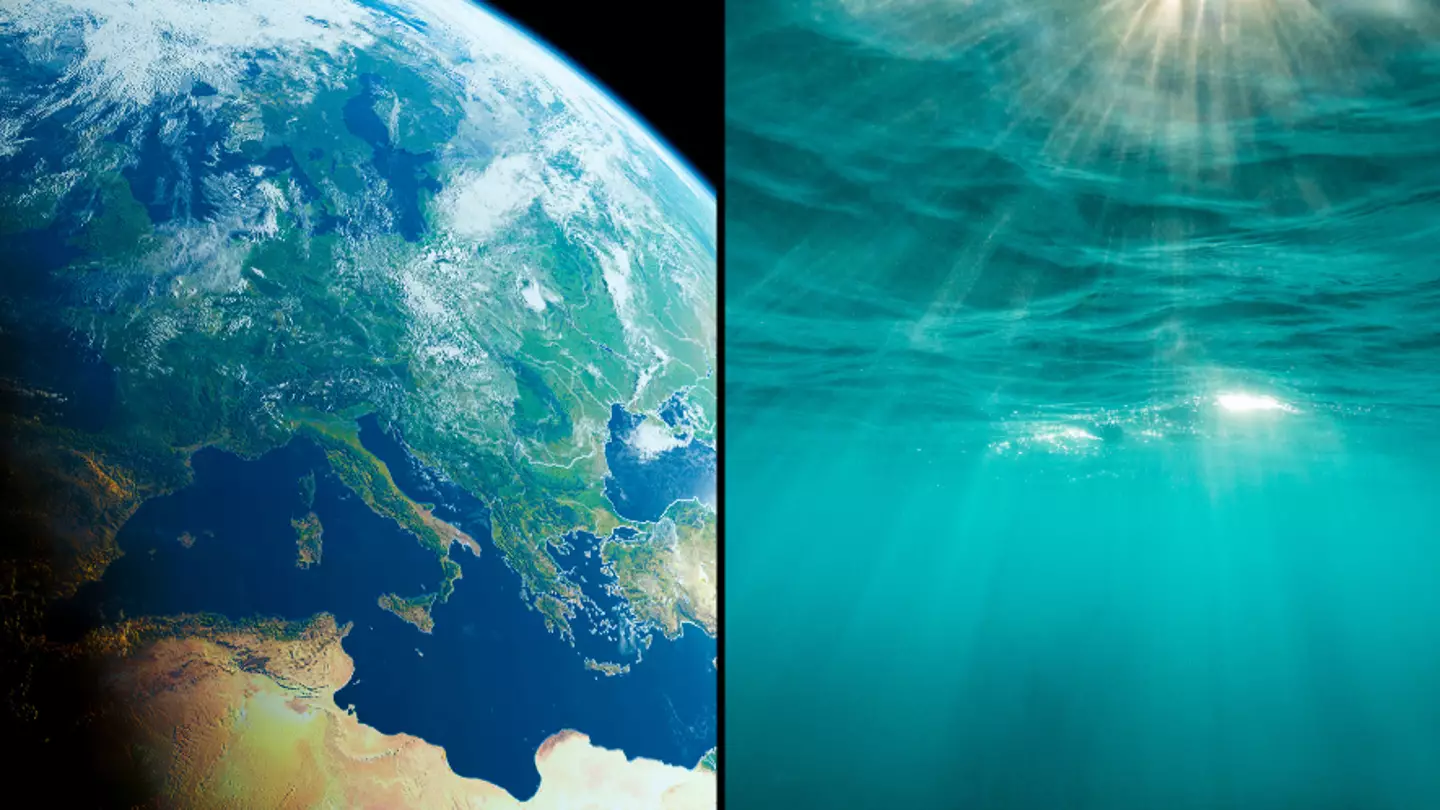
Look at a map of the world and you'd reckon that humanity discovered all the seas and oceans that make up our planet a decent amount of time ago.
However, it's only been a decade since scientists discovered a huge ocean that's three times larger than all the seas above the land.
Since that's the case, we're very lucky that this huge ocean, which was only discovered back in 2014, is hidden beneath the Earth's crust, otherwise we'd all be underwater right now.

Advert
Buried over 400 miles beneath the ground in the Earth's mantle is a blue rock known as 'ringwoodite' and it's in here that the water is hidden.
According to New Scientist, the discovery of the new ocean helped shed some light on our world's water as some geologists had thought that it arrived in comets which hit the planet, but this discovery supports the idea that our oceans instead 'oozed' out from inside our planet.
Steve Jacobsen, a geophysicist, who was part of the discovery of this incredible underground ocean, said it was 'good evidence the Earth’s water came from within'.
He said: "The ringwoodite is like a sponge, soaking up water, there is something very special about the crystal structure of ringwoodite that allows it to attract hydrogen and trap water.
"This mineral can contain a lot of water under conditions of the deep mantle."
As for how they actually found it, Jacobsen and his team used 2,000 seismometers to study the waves generated by over 500 earthquakes as he said they 'make the Earth ring like a bell for days'.

By measuring the speed of the seismic waves they could tell which type of rock they were going through.
It takes longer for the wave to pass through a soggy rock and they did spot it slowing down, with Jacobsen having already worked out what would happen if the wave met water contained within ringwoodite - which can contain up to 1.5 percent.
Thanks to this, a team were able to discover that the Earth's largest ocean is actually hidden beneath the surface of our planet.
At the time, Jacobsen said: "I think we are finally seeing evidence for a whole-Earth water cycle, which may help explain the vast amount of liquid water on the surface of our habitable planet.
"Scientists have been looking for this missing deep water for decades."
So there you have it—there's another ocean under us, and Jacobson and his team want to determine if it wraps around the entire Earth.
Topics: Science